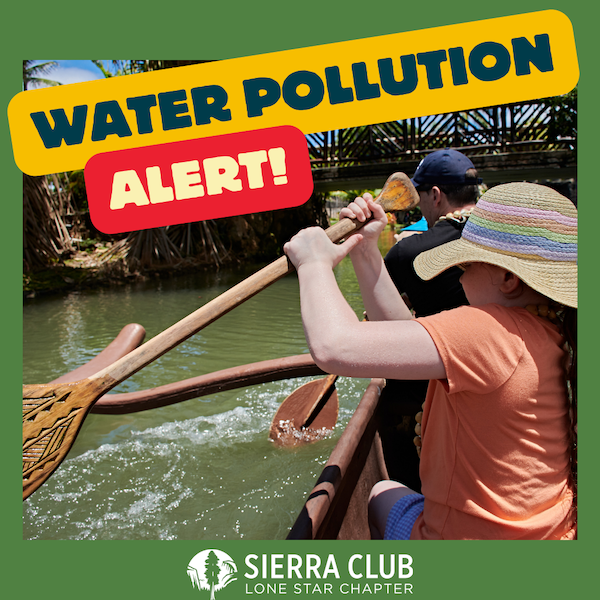
Summer traditions in Texas: giant mosquitoes, beating the record heat with swimming in springs, creeks and rivers, kids out of school, and trips to fish and camp.
Do you ever think about how much pollution is allowed in Texas waters?
Right now the Texas Commission on Environmental Quality (TCEQ) is reviewing rules that decide how much pollution is safe to allow in our rivers, lakes, streams, and wetlands. Whether you enjoy fishing at your local lake, kayaking down a winding river, or simply savoring a refreshing glass of crisp clean water on a hot summer day, your voice is important in protecting the precious water resources of the Lone Star State.
Tell the TCEQ that everyday Texans are watching and want our waters protected.
Even though the TCEQ’s call for preliminary public comments has ended, you can still submit your comments through this action alert. When the final public comment period opens next year, we will include your comments along with those from the Sierra Club Lone Star Chapter in our submission to TCEQ.
Your feedback is invaluable to ensure that the updated standards reflect the needs and values of communities across Texas.
- How much oil & gas wastewater (“produced water”) should be allowed in our rivers?
- Should TCEQ regulate pre-production plastics pollution (“nurdles”) and microplastics on our coast?
- How should salinity standards be defined so coastal communities and ecosystems are protected?
- What levels of algae-forming nutrient pollution should be allowed in your local creeks and streams?
Join us as we advocate for the future of the ‘lifeblood’ of our state by submitting your comments here, so we can deliver them to TCEQ and ensure your voice and community are represented.